

It’s certainly been an interesting week in games, hasn’t it? The long-awaited announcement of Microsoft’s next gaming console has finally happened, and reactions to the new “Xbox One” have been mixed, to say the least. There have been a wide variety of complaints raised against the new console, and Microsoft has done a poor job of offering a clear response to those complaints.
Perhaps the largest and most controversial complaint, and the one that Microsoft has done the worst job of clarifying their position on, is the issue of used games. Various Microsoft spokespeople have made it clear that used games will not work in anywhere near as laissez-faire a manner as the have on previous generations of hardware; it appears you will have to pay a fee of some sort if you want to play an Xbox One game on any account beyond the one it was initially activated on. This fee may or may not be the full price of the game, as again, Microsoft hasn’t been very clear on this.

Whatever it is that Microsoft is planning, it’s clear that there will be some system in place to prevent players from freely lending games to friends, or trading them in at GameStop for a few bucks. For many people, this is the nightmare scenario that they’ve feared ever since a Sony patent on restricting used game sales came to light back in January. For others, however, this is apparently a move for which Microsoft should be praised.
In a strange, disconcerting Penny Arcade Report post on Thursday, Ben Kuchera demonstrated a shocking level of corporate apologetics when he outlined why he thinks that killing off used game sales is actually good for the industry. Many have been quick to criticize the leaps of logic he makes in his defense of this anti-consumer practice, and rightly so.
His argument in favour of preventing used game sales boils down to four main points: A) Doing so will kill the used game market and run GameStop et al. out of business, which is apparently a good thing; B) The death of used games will make new games cheaper, since publishers aren’t losing money to the second hand market; C) Artificial scarcity will disappear, since you’ll be able to install a game on several systems with the same disc, and all those systems can pay for it separately online; and D) good ol’ piracy prevention will be aided by Microsoft’s new online authentication system.
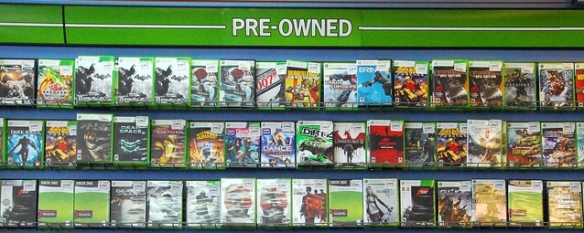
Let’s address these points one at a time, starting with the idea that GameStop ceasing to exist is a good thing. To be honest, I’m not really sure what the argument in favour of this position is; GameStop gives tens of thousands of people gainful employment, gives games and gaming further exposure to the masses via their physical storefronts, and sells a massive number of video games. In fact, even their practice of letting you trade in used games for a tiny sum of money (a practice they are often criticized for) appears to help the industry move units. GameStop’s president has stated that “70 percent of income that gets handed over to consumers for traded goods is immediately spent on new games.” That accounts for about $1.8 billion going directly into the coffers of the game development industry. It’s hard to imagine a world in which the death of GameStop and other used game retailers helps the industry in any way.
The accompanying argument to this is that the death of GameStop and the entire rest of the second hand market will save publishers all that money they’re losing to used game sales, which will enable them to charge less for games. The problem with this theory is that corporations are incredibly reluctant to pass their savings down to consumers, and generally prefer to use those savings to pad their profit margins instead. To believe that game publishers will benevolently reduce the cost of games thanks to our brave used game sacrifice is to ignore several decades of economic history. Furthermore, this theory completely ignores the fact that development costs have been steadily increasing, and there’s no way in hell publishers will be able to afford to sell next-gen, triple-A games for less money than they do now. Let’s move on, shall we?
The next argument presented by Kuchera is that the Xbox One’s method of dealing with used games will prevent artificial scarcity of new releases. All those midnight launch lineups, and the necessity of pre-ordering popular titles, will supposedly disappear overnight. The reasoning behind this idea is that you’ll be able to install the game on as many consoles as you like with a single physical disc, so long as everyone installing it off that disc buys their own license for the game when they install it.
Of course, this argument conveniently omits the fact that we’ve already solved the problem of artificial scarcity: digital releases are unlimited in quantity, and don’t even require you to leave your house if you want to get the game right at midnight on release day. The fact remains, however, that many people still just like owning physical copies of games, and having ten people install off the same disc doesn’t solve this. People also like going out to their local game store and hanging out with other people who are similarly excited for the release of a new title, and the sense of community created by this is not something we should be throwing away without a second thought.
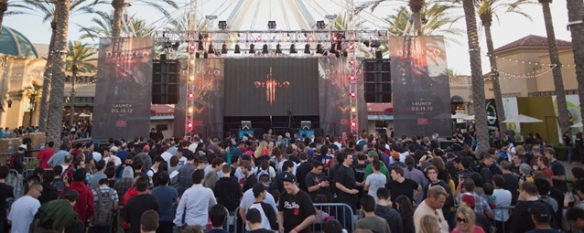
If this supposed scarcity of games was a real issue, there never would have been lineups to buy Diablo III. The game was available as a digital download right at midnight, and yet thousands of people still flocked to pick up their hard copies in the middle of the night, because they happen to like doing that sort of thing. Getting rid of artificial scarcity is solving a problem no one asked for a solution to, and for which a solution already exists if we wanted it.
Onto Kuchera’s final and perhaps weakest point, then. In a manner not unlike what we expect to see from the stuffed suits of the RIAA and MPAA, Kuchera states matter-of-factly that, as a result of the online authentication accompanying Microsoft’s method of used game prohibition, “piracy will likely be reduced.” He doesn’t cite any sort of evidence in support of this theory that DRM reduces piracy, and that’s probably because no such evidence exists.
For a look at how well online authentication prevents piracy, we need look only as far as the music industry. iTunes has required account-based authentication in order to play iTunes Store-purchased music for quite some time now, and also happens to be one of the largest platforms for music distribution in the world. They’ve effectively ruined any chance you have of sharing your legally-purchased digital music with your friends, in almost exactly the same way that Microsoft intends to ruin game sharing. And yet, piracy of music has shown no signs of slowing down since its rise to prominence in the late nineties. Without seeing any evidence that would indicate video game piracy will behave any different than music piracy (and such evidence has certainly not been presented by Kuchera,) it’s hard to see how this point about piracy reduction holds any water whatsoever.

So after all this, we’re left with what appears to be no tangible benefits to abolishing the sale of used games, and there’s no question that we will incur substantial tangible losses. As John Walker of Rock, Paper, Shotgun eloquently explains, what we’re giving up if we allow used games to be done away with is our fundamental ability to share with others. Our natural inclination to grant others the pleasure of experiencing the things we ourselves have enjoyed – be they albums, books, games, or anything else – will be stifled by a company that hasn’t proven why such measures are necessary in the first place. If that doesn’t sound completely untenable to you, it is perhaps time for you to watch a bit more Sesame Street, and a bit less Microsoft PR shlock.




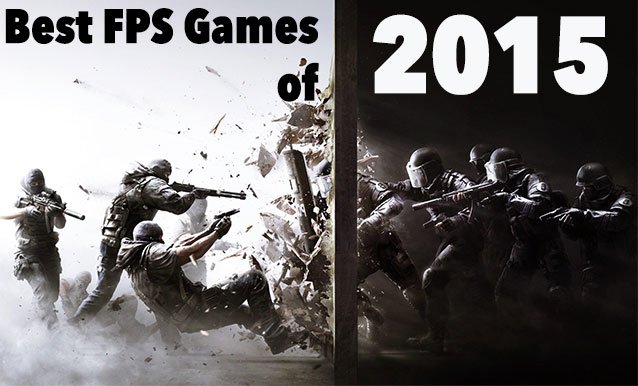 Top 10 Best FPS Games of 2015
Top 10 Best FPS Games of 2015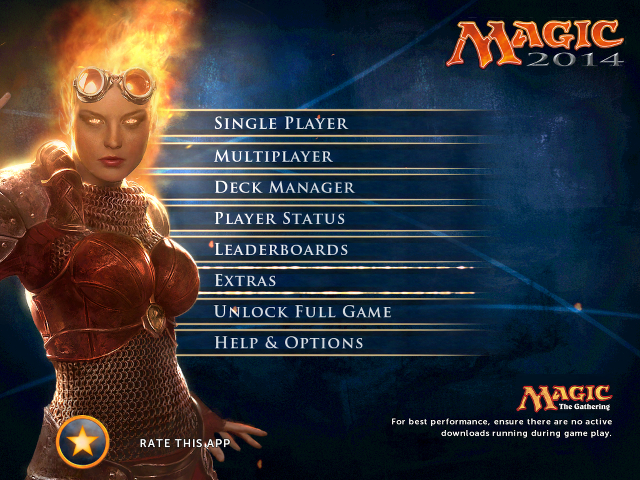 Try Your Hand at These 3 Great iOS Collectible Card Games
Try Your Hand at These 3 Great iOS Collectible Card Games Living Failures Boss guide - Bloodborne The Old Hunters
Living Failures Boss guide - Bloodborne The Old Hunters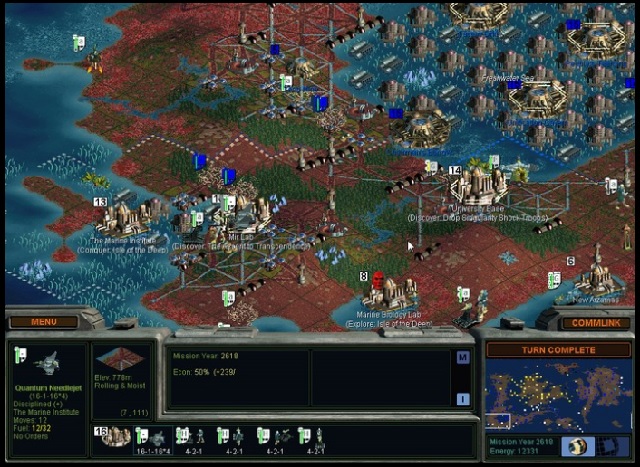 Can't Wait for Civilization Beyond Earth? Play These Space Games Now
Can't Wait for Civilization Beyond Earth? Play These Space Games Now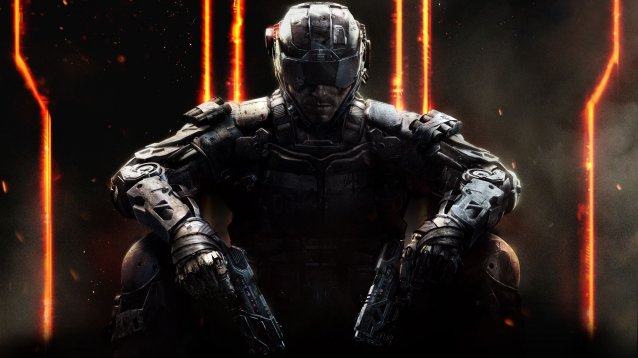 Call of Duty Black Ops 3 PC Fixes Guide
Call of Duty Black Ops 3 PC Fixes Guide